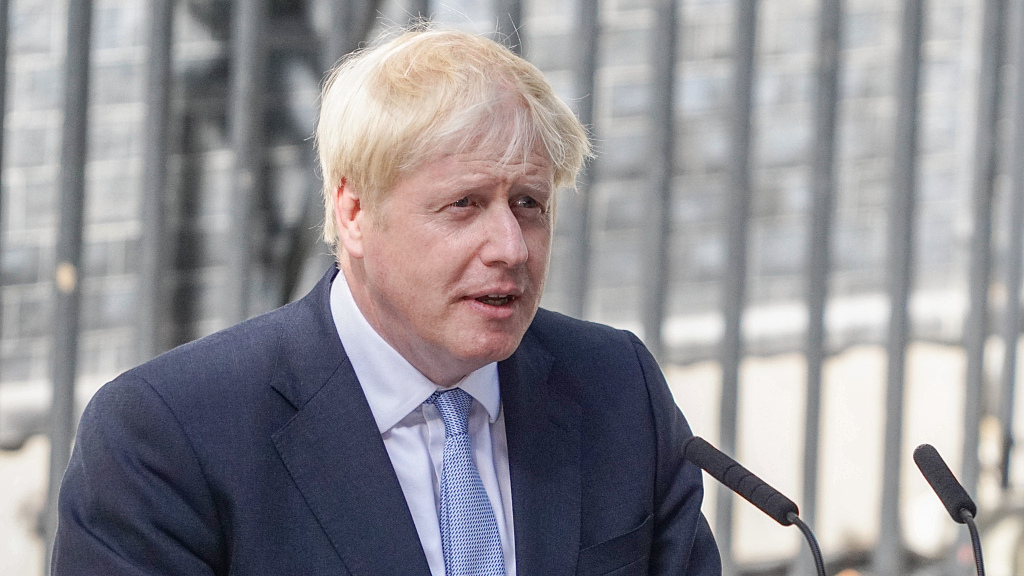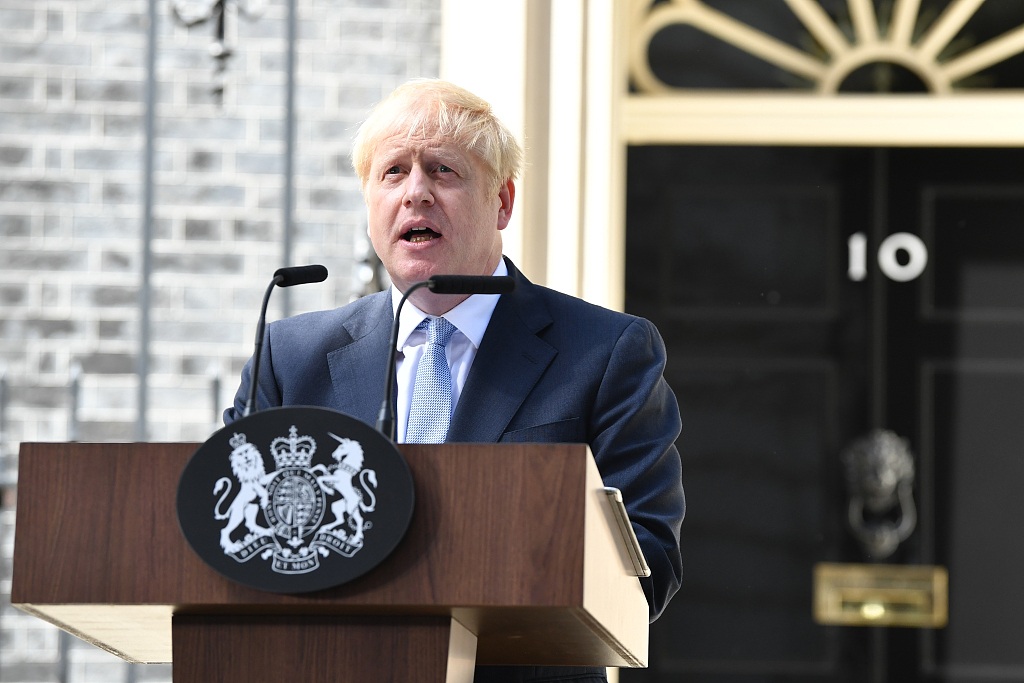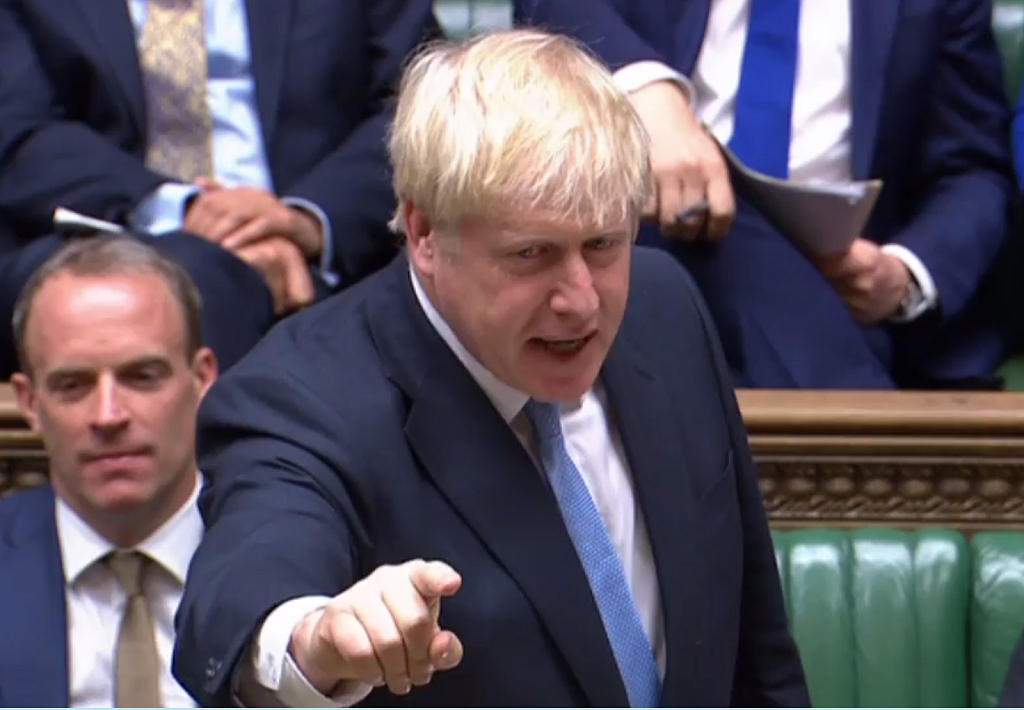

Editor’s note: Chris Deacon is a postgraduate researcher in politics and international relations at the University of London and previously worked as an international commercial lawyer. The article reflects the author's opinion, and not necessarily the views of CGTN.
The British pound sterling hit fresh two-year lows against the U.S. dollar at almost 1.21 U.S. dollars on Tuesday, while performing equally poorly against the euro – dipping below 1.09 euros (around 1.22 U.S. dollars). The pound’s weakness is causing havoc for British holidaymakers, as they head in large numbers to the European continent over the summer.
Behind these dips is the looming threat of a no-deal Brexit and, in particular, Boris Johnson’s new government’s seeming lack of fear regarding the prospect. Michael Gove – the former environmental secretary, and now working on no-deal preparation within Johnson’s cabinet – wrote over the weekend in the Sunday Times newspaper that the government was now “working on the assumption” that the UK would leave the European Union without a deal.

British Prime Minister Boris Johnson speaks to the media outside 10 Downing Street in London, England, UK, July 24, 2019. /VCG Photo
Then, on Monday, a spokesperson for 10 Downing Street stated that the UK government was not willing to enter into talks with Brussels for any further negotiations unless the latter agreed to drop the so-called Northern Irish backstop.
This is something that the EU has repeatedly stated it refuses to support. Both the European Commission and the most important EU member state concerned, Ireland, have insisted that there is no scope for removal of the backstop due to the dangers this would cause for continued peace on the island of Ireland and the proper functioning of the EU’s single market.
The Downing Street spokesperson went on to say, however, that were the EU unwilling to agree to reconsider its position on the backstop, “we must assume there will be a no-deal Brexit on October 31.” Needless to say, these comments greatly worried the financial markets.
Prime Minister Boris Johnson, himself, tried to reassure those concerned by stating later on Monday that a no-deal Brexit was not government policy and that he would “go the extra thousand miles” to agree a new deal with Brussels. This contradictory tone, however, was not enough to reassure those selling the pound sterling.
Analysts are suggesting that the end of sterling’s fall is not yet in sight – as long as the government appears intent on pursuing its current strategy on Brexit, a no-deal outcome will continue to become more and more likely. As well as such an eventuality causing severe practical problems for everyday life in the UK, the pound is likely to be hit very hard.
Markets will not wait for October 31 to price in such an outcome, however, and as we get closer to Halloween, the pound will likely continue to fall – not just due to the negative effects that no-deal would have on the UK economy, but the likely government policy that would follow it, including large amounts of spending already promised by Johnson’s government.

Boris Johnson makes a statement in the House of Commons in London, England, UK, July 25, 2019. /VCG Photo
The irresponsibility here, however, is not just that the UK government is now in essence adopting a no-deal Brexit as its stated policy, but that the leader of this new government – Boris Johnson – is refusing to state this publicly. Michael Gove’s comments were largely reflective of the line the government appears to be taking, and indeed if the government genuinely is seeking to leave the EU without a deal, it certainly must do all it can to prepare the country for this.
But Johnson’s contradictory words undermine this policy and suggest to members of the public – including, for example, small business owners across the country who should be making adequate preparations – that a no-deal Brexit is actually extremely unlikely. During the Conservative Party leadership campaign, Johnson suggested, for example, that no-deal was a “one in a million” chance.
The financial markets can see through this bluster – hence the sterling’s fall – but many ordinary members of the public may well believe Johnson’s misleading comments, and have their interests harmed in the process.
If Johnson genuinely wishes for the UK to leave the EU without a deal on October 31 – absent a miracle renegotiation – he must be honest with the public that this is his policy. For his ministers to advocate this, but for him to then deny it, only creates confusion. It this genuinely is his policy, and then he must own it.
(If you want to contribute and have specific expertise, please contact us at opinions@cgtn.com.)

Copyright © 2018 CGTN. Beijing ICP prepared NO.16065310-3
Copyright © 2018 CGTN. Beijing ICP prepared NO.16065310-3